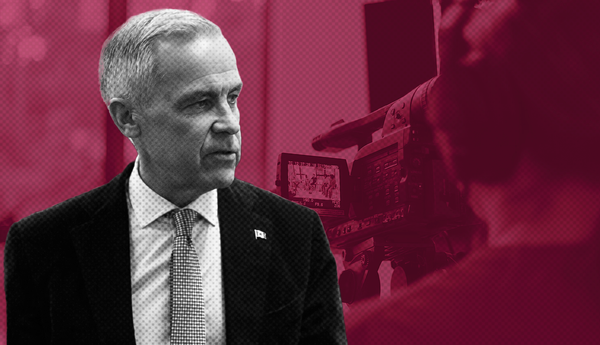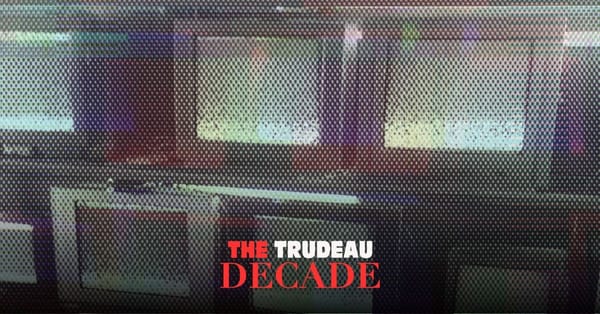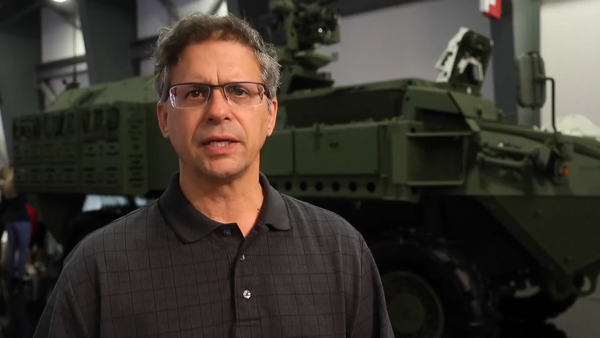The Vancouver Sun has quietly scrubbed an opinion article that boosted elements of the Great Replacement theory, which has been widely identified and critiqued as white supremacist propaganda.
The article, by Martin Collacott, was published by the Vancouver Sun on June 4, 2017, with the headline “Canada replacing its population a case of wilful ignorance, greed, excess political correctness.” I will quote heavily from it in the following section.
Before I do so, here’s a description of the Great Replacement theory from National Immigration Forum (NIF): “The ‘great replacement’ theory, in simple terms, states that welcoming immigration policies — particularly those impacting nonwhite immigrants — are part of a plot designed to undermine or ‘replace’ the political power and culture of white people living in Western countries.” NIF states that one prominent iteration of the theory is “voter replacement,” meaning it “incorporates the inaccurate assumption that nonwhite immigrants will vote a certain way, and therefore pro-immigration policies are designed by elites to diminish the political influence of white Americans.”
Collacott’s article, which does not refer to the Great Replacement theory by name but uses the words replace and replacement throughout, begins by citing statistics from a professor regarding Canada’s changing demographics, claiming that, “Canada is undergoing the fastest rate of ethnic change of any country in the Western world.” Collacott then writes: “Questions must be asked about why such drastic population replacement is taking place and who is benefiting from it.”
He follows up by claiming, “While Canada has been helped by large-scale immigration at various times in its history, the current high intake causes more problems than benefits for our current population.” He then writes, “Those who seek to benefit from continued high immigration include leaders of political parties bent on expanding their political base with policies designed to make it easier to come here from abroad and acquire the full benefits of citizenship.”
Collacott adds: “While a moderate degree of diversity can make society more vibrant — and my own family is an example of this — it is quite a different matter when it develops to a level where it overwhelms and largely replaces the existing population, particularly when there is no good reason for allowing this to happen.” A problem with this, he argues, is that, “We will also have to contend with the fact that many will bring with them values and traditions that may differ in key respects from those of most Canadians, such as gender equality and concern for protection of the environment.”
Beyond merely portraying the level and demographic makeup of immigration to Canada as bad, Collacott argues that Canadians should do something about it. He writes, “Is this what Canadians want for their children and their descendants? Almost certainly not. And yet we are letting it happen through a combination of wilful ignorance, political and financial greed and an excess of political correctness. Are we prepared to do something about it? Sadly, it appears that most Canadians are too supine or short-sighted to do so — at least at this juncture.”
Collacott’s author bio notes that he “served as Canadian ambassador in Asia and the Middle East” and had “testified on numerous occasions before parliamentary committees as an expert witness on immigration, refugee and security matters.”
On May 16, Bashir Mohamed, who has written for Passage before, tweeted about the article, comparing it to the manifesto released by the man responsible for the mass shooting in Buffalo two days earlier. Mohamed wrote, “Just remembered that Postmedia published this op-ed in 2017 that is almost word for word the same as the Buffalo shooters manifesto. The words that radicalized this white supremacist were not ‘fringe’ — they were printed in our newspapers.”
Mohamed then cited several passages from the article that he believes resemble the Buffalo shooter’s manifesto, and called on his followers to ask the paper to remove the article. Mohamed goes on to mention that, “Many, including myself, sounded the alarm when this horrible myth leaked into our public discourse. We were ignored.” (Mohamed’s account has since been deactivated.)
The Buffalo mass shooter isn’t the first to cite the Great Replacement theory in a manifesto. In fact, he mentions several mass shooters in his manifesto as inspirations for his act, and many of them also cited the theory in their communications released prior to their attacks.
The original link for Collacott’s article now redirects readers to the Vancouver Sun’s home page, with no mention or note of the takedown, which occurred sometime between May 16 and 17. The article is still available via the WayBack Machine, and if for some reason that fails, a website literally titled “alt-right” posted an excerpt of it with a link to the original.
I reached out to Vancouver Sun editor-in-chief, Harold Munro, to ask why the article was taken down now (nearly five years after publication), why no notice of the takedown was given and if the paper was planning to issue one. Munro replied: “The opinion piece was removed because the contents are offensive and don’t reflect the standards of The Vancouver Sun. I was not aware the opinion piece was archived on the website, or it would have been removed earlier. We have no intention of drawing further attention to the piece.”
I followed up to ask what Munro meant when he said he wasn’t aware the piece was archived, pointing out that it’s normal for articles at the publication, and most publications, to remain on the website indefinitely after they are published. Munro, who has worked at the Vancouver Sun since 1986 and has been the editor-in-chief since 2012, didn’t reply.
Collacott, the author of the article that was deleted last week, died in 2018. Someone on Twitter responded to Mohamed’s thread, pointing this out. Mohamed replied, “Unfortunately many more people like him platformed this horrible propaganda and are still kicking around influential spaces.”







